Last Week I posted part one of a two part series with one of the people I respect most in the world of Public Relations – Deirdre Breakenridge. Dierdre recently finished her fourth Financial Times business book, 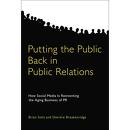 “Putting the Public Back in Public Relations,” co-authored by Brian Solis, published in March 2009 and available in major bookstores. She has also authored: “PR 2.0, New Media, New Tools, New Audiences,” “The New PR Toolkit” and “Cyberbranding: Brand Building in the Digital Economy.”
“Putting the Public Back in Public Relations,” co-authored by Brian Solis, published in March 2009 and available in major bookstores. She has also authored: “PR 2.0, New Media, New Tools, New Audiences,” “The New PR Toolkit” and “Cyberbranding: Brand Building in the Digital Economy.”
I asked her to give us some insight on the current state of publicity in the music business and she gave me a lot to chew on…. Here is part two of her interview with me
Ariel Hyatt: What’s the key difference between doing PR DIY style now and five years ago?
Deirdre Breakenridge: I think that it was a lot more difficult to do DIY style PR five years ago. It was harder to gather and maintain contacts and relationships with journalists, as well as with your fans. You had to rely on the media to write about you and then it was often not easy to find and maintain a good list of contacts. Technology was costly and the approach was not targeted. Today, there are so many great social media tools and resources at your disposal. These sharing resources and applications allow you to connect with your influencers and customers directly, more quickly than ever before. In years past, you may have also solely relied on media relations and the third party endorsement. However, when it comes to DIY PR today, you can create effortless outreach to the right people who will talk about you, recommend you, and create one of the most valuable forms of endorsement, word of mouth. Of course, you always have to provide meaningful information so that it’s shared by bloggers or customers in their communities. DIY PR through social media gives you so much more reach and better connections for you to manage.
AH: What needs to happen first when approaching a newspaper, magazine, or television show if I’m in a band?
DB: If you are going to approach any kind of news outlet, you really need to have the right press materials. Because journalists are online searching for information, you should have a web presence and a digital media kit. Your media kit will contain any recent news releases, a concert calendar, downloadable images including headshots, logos and photos from events, music clips and video footage, if possible. It’s really important to be able to offer a journalist this information upfront. Advanced newsrooms allow you to build your media kits with areas that offer journalists the ability to search for information as well as digital assets, request interviews with you and also to comment on your music and to share their thoughts about your body of work. I would recommend a newsroom where all of this information is organized and easy to access. The result will be more online coverage and a chance for people to find you.
AH: I have $500 to spend on PR. What do you suggest I do?
DB: With $500, I would build a web presence/blog for your community and a newsroom to house all of your information. A simple website/blog with a newsroom is a good place to start. It showcases, your talent and provides valuable materials for several audiences that may be interested in your music. You want to have an online presence, so that when you set up profiles in social networking communities, your fan base, prospective fans, journalists and other potential business partners have a place to find out more information about you, your music and upcoming event/tours. You can always grow your online presence in time, but this is a great way give people more information about you quickly and another way for them to contact you directly.
AH: Can you explain where I should invest 10 hours of learning time so I can get up to speed on how to do my own PR 2.0?
DB: With 10 hours, I would go read a few good books on PR 2.0. Here’s a short list of books that will help:
• PR 2.0 New Media, New Tools, New Audiences
• The New Rules of Marketing and PR
• The New Influencers
• Music Success in Nine Weeks
Also spend time researching music blogs (I blog for View Maniac, which is a social networking community for indie artists), and research what other musicians are doing on the web to see how they are building their communities. By listening in communities and observing, you can learn a tremendous amount. The web is a great research tool on PR 2.0 and there is no shortage of experts who are out there discussing PR 2.0 strategies.
AH: How do I know if a publicist or social media manager is actually doing a good job?
DB: I think you will be able to tell quickly if you have made the right connection with a publicist or social media manager and if they are doing a good job. But, you have to make sure to define the right objectives and goals for your PR program, and that everyone is on the same page in terms of expectations. Then, these folks should be able to guide your PR and social media efforts, show you relevant conversations, help you to create connections and coverage, work with you to build your social networking profiles and make sure that you have a suitable web presence/newsroom and community on your own website. When you find the right people to work with, you will feel less pressure, find that your content and promotional efforts are more organized, and you will see increased communication on your behalf. The bottom line: your fan base grows. Making the right connection means tangible results and PR and social media managers need to be held accountable for these results.
AH: Is there anything else you would like to share about PR / PR 2.0 for artists and people in the music business?
 DB: I think that musicians and the music business, in general, have a tremendous opportunity to be a part of online communities; places where they were never invited before to connect directly with fans and potential fans. There is a lot to learn and understand about PR 2.0, so you don’t want to jump into a community too quickly and just “sell” yourself. This is the opposite of what you should do. I’m a firm believer in listening, observing and identifying the best places to engage with people so that you can offer them something that they need, want and will share because they find your story or your offer of value. However, it’s really important to learn how to make the best of all worlds (traditional and social media) and go where your consumers are congregating. So, this could mean working through media outlets for music reviews, but it also means participating in web communities because today participation is marketing, branding and PR.
DB: I think that musicians and the music business, in general, have a tremendous opportunity to be a part of online communities; places where they were never invited before to connect directly with fans and potential fans. There is a lot to learn and understand about PR 2.0, so you don’t want to jump into a community too quickly and just “sell” yourself. This is the opposite of what you should do. I’m a firm believer in listening, observing and identifying the best places to engage with people so that you can offer them something that they need, want and will share because they find your story or your offer of value. However, it’s really important to learn how to make the best of all worlds (traditional and social media) and go where your consumers are congregating. So, this could mean working through media outlets for music reviews, but it also means participating in web communities because today participation is marketing, branding and PR.
###

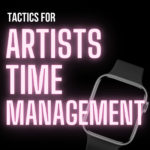
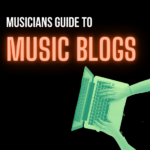
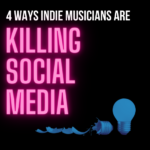
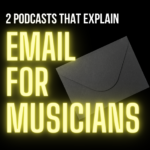
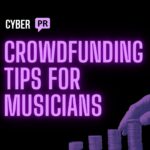
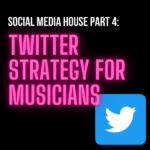




I just got some good info on how things work in this music business. And its people like you that make real stars so please keep up the good work